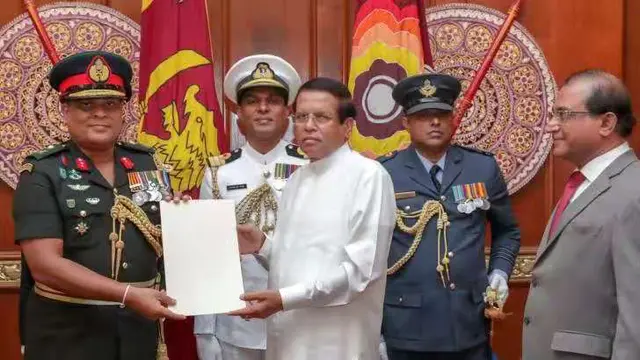Fiji's 2014 General Election, the first ever since the South Pacifc island nation's 2006 military coup, kicked off on Wednesday.
Over 1,000 polling stations across the country opened at 7:30 a. m. and are expected to close at 6:00 p.m., with hundreds of thousands of voters flocking to their respective voting venues to cast their ballots. Police deployed some 3,200 personnel nationwide to guard at polling venues.
Vinod Kumar Khatri, 65, and his wife Prabha said they could not wait to cast their vote as they were excited about democratic processes falling back into place in Fiji.
The couple, who run a car business in Suva, said they got up at 6 a.m. and arrived at the polling station at 7:45 a.m. It took them 20 minutes to cast their vote.
Prabha said she wants to make a difference and that was why she voted.
Silina Salavuki, 29, said she wants to vote because she wants a say in the government of the day and a better and brighter future.
"It's important because my one vote counts and I will benefit from it," Salavuki told Xinhua, adding that she expects a government that would bring in healthy change for the Fijian people.
"The price of goods for new income earners like us is too much and this should change to suit our pockets as the prices of goods in Fiji is really high compared to what we earn in wages," Salavuki said.
A young family of four, Zac West, wife Romain, 21, and two kids were up early to be in time for a shorter queue.
The young couple, both first time voters, said they want a better government to run the country and to continue providing free primary and secondary education.
Wheelchair bound Miriama Rasavu, 81, said she is thankful to God for allowing her to live to witness the 2014 General Election.
While she had been through several elections, Rasavu said she believes this election is very important for the future of Fiji, and she hopes that the new government elected will bring peace to the people.
The widow said although her body is in pain as she is sickly and wheelchair-bound, she made an effort to vote to bring change to Fiji for the sake of the future generation.
Unlike others, Rasavu, who did not have to queue up, went straight to the booth to vote as soon as she arrived. She is grateful to election officials for the speedy process she went through to cast her vote.
Friends Dhinesh Khatri and Vinod Pala, who run a business in Suva, said they were at their polling station by 6 a.m. They said while everything seems alright so far, they want a government that identifies with everyone regardless of class, race and education level.
Mohammed Akif, 54, who spent one hour to vote, told Xinhua he wants stability and no more coups or conflicts in the island nation.
Indigenous Fijians and Indo-Fijians need to work together in harmony for a better Fiji, Akif said, underscoring that it is important to accept the poll results regardless of who won because that would be what the people want.
In a bid to facilitate the nearly 600,000 registered voters and complete the general election in a single day, the government has set Sept. 17, a Wednesday, as a public holiday.
To demonstrate impartiality, Fiji has invited at least 14 foreign countries including Australia, India, Indonesia, Papua New Guinea, as well as the European Union to send their observers to monitor the election process.
More than 240 candidates, including a few independent ones, run for the election. The rest come from seven political parties, namely the FijiFirst party, Social Democratic Liberal Party, Fiji Labour Party, National Federation Party, People's Democratic Party, Fiji United Freedom Party, as well as OneFiji Party.
An opinion poll conducted by the Fiji Times newspaper in early September showed that 49 percent of the interviewees were in favor of Voreqe Bainimarama, leader of FijiFirst, followed by Social Democratic Liberal Party leader and former minister for women Teimumu Kepa with a support rate of 20 percent. In other opinion polls, Bainimarama and his FijiFirst party also led the race with handsome margins.
Pre-polling, which started on Sept. 3 and ended on Sept. 15, was intended for some 65,000 registered voters living in remote areas or those that are part of services such as military and police. Statistics of the Fijian Elections Office show a turnout of around 77 percent for the pre-polling.
Fiji's current constitution provides for a unicameral 50-member parliament, which will be the country's supreme authority and be elected on the basis of one person, one vote, one value. Elections are to be held every four years and every Fijian over the age of 18 is entitled to vote in the single, nationwide constituency.
As per the constitution, after a general election, the member elected to the parliament who is the leader of a political party which has won more than 50 percent of the total number of seats in the parliament assumes office as the prime minister.
However, if no one political party has won more than 50 percent of the total number of seats in parliament, then it's up to the members of parliament to nominate and elect the prime minister with a support rate of more than 50 percent.
The voting procedure ends on 6 p.m. local time (0600GMT), and ballot counting starts immediately afterwards.
 简体中文
简体中文

